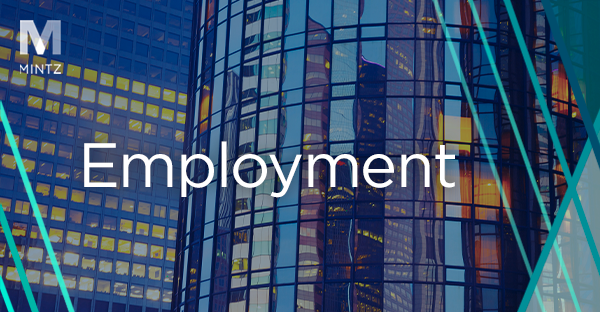Federal Court Strikes Down the U.S. Department of Labor’s Overtime Rule
A federal judge in Texas has vacated the U.S. Department of Labor’s final rule increasing the salary thresholds for the “white collar” overtime exemptions under the Fair Labor Standards Act (FLSA) and did so on a nationwide basis. In a sweeping 62-page decision, U.S. District Judge Sean D. Jordan of the Eastern District of Texas declared that the DOL exceeded its rulemaking authority by attempting to raise the minimum salary for the executive, administrative, or professional (EAP) and highly compensated employee (HCE) exemptions under the FLSA.
The DOL rule, which we previously wrote about here, took effect on July 1, 2024 and initially increased the minimum salary thresholds for the EAP exemptions from $684 per week ($35,568 annually) to $844 per week ($43,888 annually) and also increased the minimum salary threshold for the HCE exemption from $107,432 to $132,964 annually. Critically, these increases were only the beginning—the DOL rule would have raised salaries again on January 1, 2025 and provided for further increases beginning July 1, 2027 and every three (3) years thereafter. The DOL posited that its new rule would have made approximately four million employees newly eligible for the FLSA’s overtime protections.
Judge Jordan’s broad decision vacates the entire rule, including the salary increases that previously took effect on July 1, 2024. Judge Jordan explicitly held that the DOL “exceeded the authority delegated by Congress” by effectively replacing the duties test applicable to the EAP exemptions with a salary test. Referring to the DOL’s new salary basis as a “proxy characteristic,” Judge Jordan held that the increased minimum salary thresholds “effectively displaced the duties test for a significant percentage of otherwise EAP-exempt employees,” and thus exceeded DOL’s authority under the FLSA. Likewise, Judge Jordan found that the “Automatic Indexing Mechanism” (i.e., the increases to the minimum salary levels every three years starting in 2027) “abdicate[d] [DOL’s] role of defining and delimiting the EAP Exemption by regulation” and amounted to an attempt by DOL to “evade the procedural requirements of the [Administrative Procedures Act]” by setting its “rulemaking on autopilot.”
What happens now? Judge Jordan’s decision makes clear that the January 1, 2025 increases will not take effect as planned, and the decision retroactively nullifies those increases that took effect July 1, 2024. In effect, this restores the EAP and HCE minimum salary thresholds to their previous levels—$684 per week ($35,568 annually) for the EAP exemptions and $107,432 annually for the HCE exemption. While there may be appellate activity, any such appeal could be short-lived given the arrival of the Trump administration in January 2025. The new administration might support different salary thresholds – for instance, in 2019, the previous Trump administration issued a rule which shifted the weekly minimum salary threshold for the EAP exemptions from $455 per week to the current $684 per week – and it’s unclear whether his second administration would support the now-voided Biden-era thresholds issued in 2024.
Employers who previously raised the salaries of exempt employees to meet the July 1, 2024 increase must now grapple with whether to keep employees at those salary levels. As part of that inquiry, employers should keep in mind the existence of state-specific salary thresholds in some jurisdictions that already exceed the FLSA threshold. For example, the minimum salary for executive or administrative employees in New York City is currently $1,200 per week ($62,400 annually) and is increasing to $1,237.50 per week ($64,350 annually) on January 1, 2025.
Mintz’s Employment team is monitoring this issue and is here to assist employers in determining how to respond to these developments.




